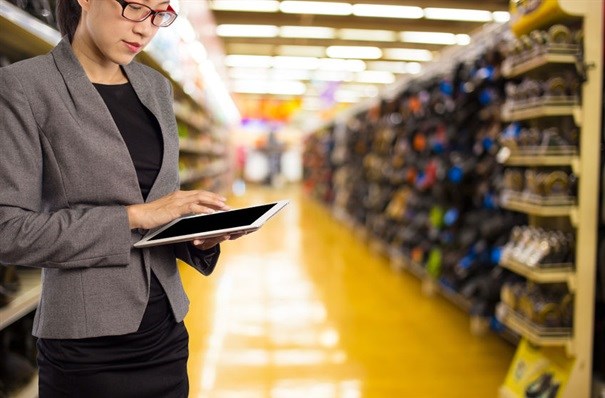
Top stories






More news





ESG & Sustainability
#Sona2026: President announces crisis committee to tackle SA's water challenges











Zebra Technologies Corporation revealed the results of the 2017 Retail Vision Study, which analyses the technology trends shaping the future of the global retail industry and enhancing the shopping experience.
Mark Thomson, retail and hospitality director, EMEA, Zebra, says, “Every inch of the retail industry is changing, from the aisles of the warehouse to the shelves of the store and retailers are driving this change in a race to better serve customers. The 2017 Retail Vision Study demonstrates that retailers are poised to meet and exceed customer expectations with new levels of personalisation, speed and convenience.”
• In 2021, 92% of retailers expect to offer click and collect, up from 50% who offer it today.
• In EMEA, respondents ranked out-of-stock merchandise (53%), the same product being available for less at another store (46%) and the desired item not being found (40%) as the top sources of consumer dissatisfaction today. Accordingly, retailers plan to reinvent their supply chain with real-time visibility enabled by automation, sensors and analytics.
• Today, 36% of retailers in EMEA know when specific customers are in a store but that number is expected to more than double by 2021.
• The continued rise of online shopping will challenge retailers to provide unprecedented levels of convenience to help drive customer loyalty. By 2021, 65% of retailers plan to explore innovative delivery services, such as delivering to workplaces, homes and parked cars.
• By 2021, nearly 80% of retailers will be able to customise the store visit for customers, as a majority of them will know when a specific customer is in the store. This will be enabled through technology such as micro-locationing, allowing retailers to capture more data, accuracy and customer insights.
• Retailers are looking to create a seamless shopper experience with 78% reporting that it is important or business-critical to integrate e-commerce and in-store experiences.
• To speed checkout lines, retailers are planning to invest in mobile self-scanning devices, kiosks and tablets to increase payment options; 87% of retailers will deploy mobile point-of-sale devices by 2021, enabling them to scan and accept credit or debit payments anywhere in the store.
• 73% of retailers rate managing big data as important or business-critical to their operations. By 2021, at least 75% of retailers anticipate investing in predictive and software analytics for loss prevention and price optimisation along with cameras and video analytics for operational purposes and improving the overall customer experience.
• According to the survey, the top sources of shopper dissatisfaction include inconsistent pricing between stores and the inability to find a desired item, whether it is out of stock or misplaced within a store - 72% of retailers plan to fix these issues by reinventing their supply chains with real-time visibility enabled by automation, sensors and analytics.
• 57% of retailers believe automation will shape the industry by 2021 – helping retailers pack and ship orders, track inventory, check in-store inventory levels and assist customers in finding items.
Research methodology: Nearly 1,700 retail decision makers from North America, Latin America, Asia Pacific, Europe and the Middle East across a wide spectrum of retail segments, including speciality stores, department stores, apparel merchants, supermarkets, electronics, home improvement and drugstore chains were interviewed in 2016 by online research partners Research Now and Qualtrics.